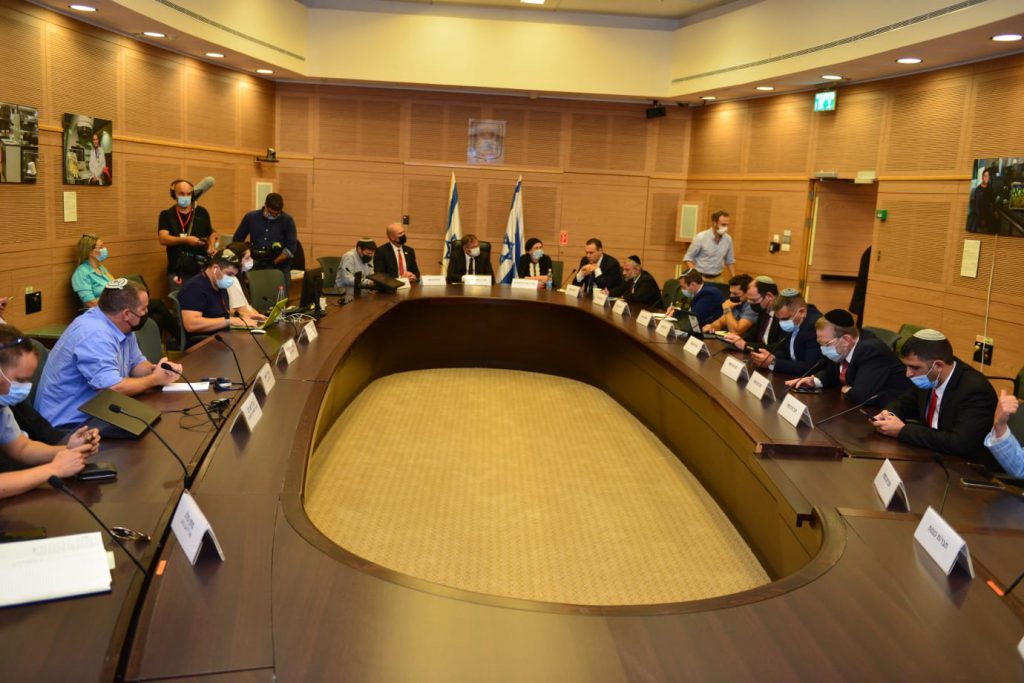Today, we participated in an emergency meeting organized by the Land of Israel Caucus in the Knesset to demand security and safety for the Negev.
Meir Deutsch, Regavim’s Director General, spoke to the Members of Knesset about the Negev predicament, and explained why Bedouin settlements that have been legalized are, in effect, still squatter camps.
The retrospective legalizations have not provided appropriate solutions for the Bedouin residents, nor have they solved the root problem of the loss of governance in the Negev.
The government decision to approve three Bedouin settlements and to connect illegal structures to the electricity grid could either lead to the regulating of settlement in the Negev and the Galilee, or the exact opposite: the abandonment of these areas. The devil is always in the details.
Regulating Bedouin settlements in the Negev and merging them into legal towns – yes. Encouraging more lawlessness – no.
**
Regavim has also been at the forefront against Ra’am’s Electricity Law, which endangers the rule of law. Ra’am, headed by MK Mansour Abbas, has threatened to dismantle the government coalition if its proposed amendment to the Electricity Law, which seeks to connect tens of thousands of illegal structures to the national electricity grid, is not passed.
The legislative amendment seeks to connect existing and all future illegal structures. This extortionate bill endangers the rule of law and national planning and construction policy. And it’s clear that approval of this law will result in a surge in illegal construction.
One of the state’s most effective tools against the national epidemic of illegal construction is the existing ban on connecting structures erected without a permit to the electricity grid.
Although there’s a certain degree of logic in approving electrical connections for structures for which the government intends to approve permits, a wholesale whitewashing of illegal construction would be a disaster.
Structures that lack permits should meet basic criteria to be approved:
- Only structures built before 2018 and the enactment of the Kaminitz Law, which included clear and enforceable criteria for construction.
- Only structures for which a detailed outline plan has been submitted by the state, and not by various entities such as local authorities.
- A bank guarantee of NIS 40,000 should be deposited. If the plan is not approved and a building permit is not obtained, the guarantee will be forfeited.
- If judicial or administrative orders of demolition for the structures haven’t been issued.
- The connection will be temporary; permanent electrical connection will be contingent on approval of the state’s plan and issuance of a building permit.
Related Posts
Building a vision for the Negev
Big news for the State of Israel: The government has outlined a historic and strategic plan that will restore governance and personal safety to the Negev. Last week, Prime Minister Netanyahu convened a meeting of the Ministerial Committee on Legalizing the Settlement, and the Economic Development, of the Bedouin Sector in the Negev to discuss […]
Petition: Tomorrow’s “Day of Disruption” isn’t a protest, it’s sanctioned anarchy
The Regavim Movement submitted a petition to the High Court this morning (Wednesday) demanding that the Police Commissioner and the Attorney General be required to stop the ‘Day of Disruption’ protest planned this week and investigate its leaders for sedition and incitement to commit crimes. After a number of urgent appeals to the Police Commissioner […]









